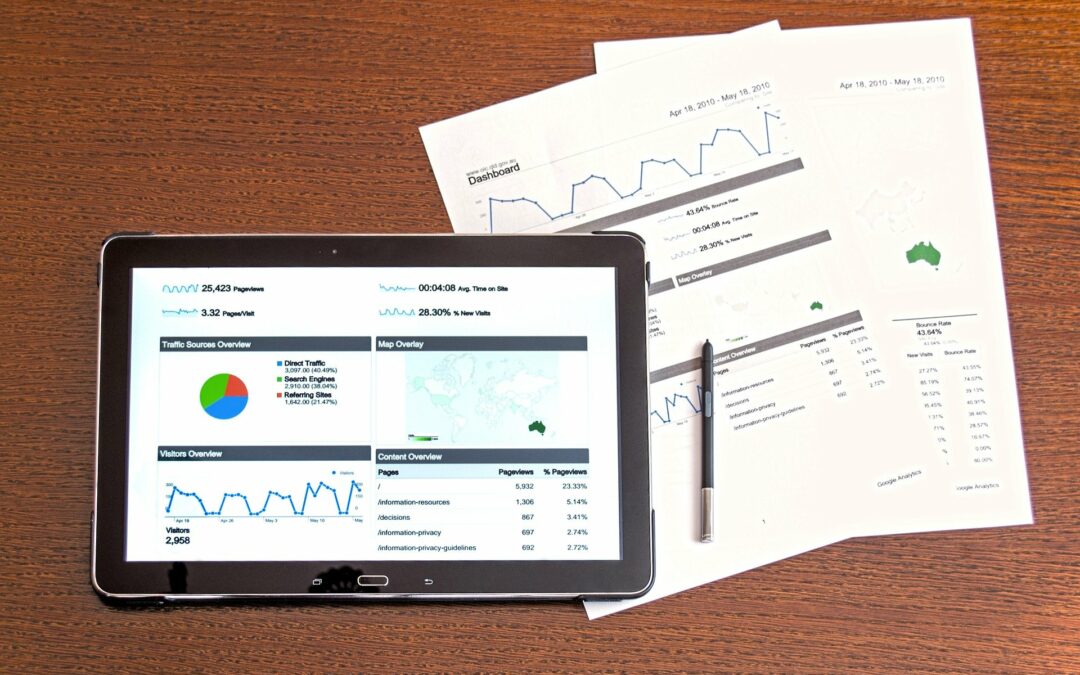Today, it’s essential to have high-performance tools at your disposal to effectively manage your HR strategy.
Did you know that a data exchange platform can save you precious time?
Find out in this article how to optimize your talent management, anticipate recruitment and training needs, and align them with your organization’s global strategy.
Today, it’s vital to make the most of data, in order to contribute to informed decision-making on the operation of the various processes that characterize the HR function. But while until now, most data analysis and BI tools were content to provide statements from a particular process or information system, this notion is increasingly outdated today, particularly in the context of organizational information system urbanization initiatives.
This is particularly true of functions such as HR, which are involved in every aspect of the organization. It’s only natural, then, that data should also be considered in its entirety, and not just restricted to certain processes.
In the age of Big Data and Business Intelligence, themassive influx of diverse and varieddata is a real challenge for organizations. They face the challenge of sorting, reconciling and aggregating this data to get the most out of business intelligence. In this context, data platforms are increasingly becoming a must-have option, but why this choice? And above all, what are the benefits? This article explores some possible answers.
What is a data exchange platform?
First, let’s define what a data exchange platform is.
In a world where data is increasingly numerous and varied, data exchange platforms are proving to be an indispensable tool for HR departments.
Often hosted in the cloud, they facilitate the import of heterogeneous data from multiple sources, and ensure their transformation to standardize formats and primary identification keys.
For HR, this means simplified access to a wide range of information on employees, candidates, job market trends, and so on.
These platforms ensure that data is homogenized and structured in such a way as to facilitate its analysis and exploitation by Business Intelligence tools.
These data exchange platforms can be very varied in structure, from Data Warehouses grouping together structured data to Data Lakes harvesting a very large number of data in a variety of unstructured formats, among others.
They also help to automate certain time-consuming processes, thus improving process efficiency.
HR data platforms: technical and operational advantages
As an HR manager, you’re constantly on the lookout for solutions to optimize your data management and facilitate decision-making. Data platforms are essential in this context.
Using HR data platforms for technical advantage
The main aim of data platforms is to centralize the storage of key information from different systems (HRIS, payroll, etc.) and provide a single access and storage platform.
This will simplify maintenance and management by IT departments, who will only have to maintain a limited number of coherent data extraction and transformation flows and processes.
They are also a major asset in democratizing access to data for all HR profiles, especially HR managers and decision-makers, by facilitating single-point access to data.
Your HR teams, from managers to decision-makers, have quick and easy access to the data they need, allowing them to focus on higher value-added tasks.
Using HR data platforms for operational advantage
A data platform isn’t just a technical issue; it’s an opportunity to reconsider your entire data strategy.
Setting up or upgrading a data exchange platform is an ideal time to think more broadly about the challenges of data governance, and in particular, the establishment of a single data repository. This ensures that data can be harmonized, collected and used in the most consistent way possible. In this sense, a data exchange platform is a major asset, thanks to the services it provides and the broad vision of data it offers.
A simple example is the implementation of a unique identifier to precisely identify each employee within the company’s various IT systems, in order to facilitate the grouping of information in the platform. This will be very important later on, if you want to take full advantage of the benefits offered by the platform, when it comes to setting up data analysis reports, or using AI.
Data protection compliance
Finally, data platforms enable efficient management of the legal regulations associated with data (GDPR, security …). The sheer volume of data in transit raises a number of issues that need to be considered upstream, in terms of the legal requirements linked to the protection of personal data.
A well-designed data platform helps to meet these challenges, making it easier to monitor access and authorizations to data, managed from the platform. Scrupulous monitoring of authorizations and the implementation of data encryption policies are essential to guarantee business continuity. Also, monitoring and GDPR compliance are simplified by grouping data together.
Centralizing data in a single location also facilitates replication for backup purposes. In addition, data platforms often facilitate data auditing by keeping track of the history of changes made to the data.
Create synergies between data to optimize HR management
Data platforms will enable much more than simply bringing data together in one place. A properly implemented platform, integrated into a broad vision of data, will at one and the same time enable theharmonization of data from different sources. It enhances data quality and creates unique links between them.
This represents a major shift in the waydata is used within organizations. Moving from a siloed view to an integrated HR strategy enables organizations to maximize the use of their information to strengthen recruitment and improve the efficiency of HR processes.
Whereas in a non-unified model, each system is considered in its uniqueness, by centralizing data, the vision becomes horizontal: data from different organizational processes can communicate with each other.
In this way, it will be possible to carry out cross-analyses of the data present within the platform, by analyzing the interdependencies between the various business processes that define the HR function.
Business intelligence reporting, made up of consolidated, aggregated data, supports decision-making by facilitating analysis of the dependencies between each of the organization’s major functions. This approach represents an essential strategic tool for the effective management of human capital in a complex, multi-factor environment.
Take for example Strategic Workforce Planningfor strategic workforce planning. An alliance between a well-managed data platform and effective reporting can be key to defining, implementing and monitoring a SWP strategy.
An in-depth analysis of HRIS data will reveal the skills pools already available to the company, as well as career and development aspirations.
Cross-referencing these data with those from a payroll system or ERP planning system can provide much greater insight into payroll tracking, pay-performance matching and staff turnover rates.
This information can be used to make informed strategic decisions on recruitment and talent retention.
Artificial intelligence and HR data management
The adoption of artificial intelligence in HR human resources management offers exciting new prospects for professionals in the field.
By centralizing HR data in a single space, companies can activate additional levers for analyzing business challenges, thanks to the use of machine learning and artificial intelligence. Bringing all data together in a single location will be a powerful factor in facilitating the implementation of these models. As we all know, the quantity, quality and diversity of available data are key factors in the successful implementation of AI.
By paving the way for the exploitation of historical and aggregated data, data platforms will considerably facilitate the adoption of these tools.
One example, particularly in the age of generative artificial intelligence models, is strategic recruitment planning. A generative AI decision-making tool can, based on keywords characterizing a profile to be searched for – in our case, representing skills, for example – automatically determine suitable profiles from the company’s pool of applications. A number of recruitment tools already offer this, of course. But the analysis becomes really interesting when these data are cross-referenced and analyzed with regard to skills and skill requirements, data generally taken from the HRIS. Finally, to complete and deepen the analysis, the budgetary dimension can be integrated by cross-referencing HRIS and ERP data.
The algorithm identifies the profiles that best match the skills required, while staying within the allocated budget.
This innovative method facilitates skills and performance management, and even offers relevant solutions as an alternative to traditional recruitment, by reducing the need for human intervention.
Generative artificial intelligence is therefore becoming an indispensable tool for HR professionals wishing to optimize their recruitment and talent management processes .
Conclusion on optimizing HR management with data platforms
In conclusion, data platforms offer more than just the technical and regulatory advantages of data centralization. Today, they represent a major strategic tool for companies, opening up a wide range of possibilities for cross-analysis of all the components that influence human resources management processes within organizations. These platforms are the central pillar enabling cross-analysis of various organizational data.
At a time when information systems are increasingly present in the organizational landscape, but still unable to communicate effectively with each other, the data platform appears to be an excellent way of globalizing theexploitation of data within organizations.
However, it is necessary to organize one’s business strategy in such a way as to place data at the heart of one’s choices. It’s also important to grasp the challenges of data through a good governance strategy. The aim is to ensure that the data platform is not simply an empty warehouse, but an essential building block in the company’s HR strategy.
Several professions will be involved, including the IT professions (the data engineer for platform management, the data analyst for data enhancement, and the data scientist). Data-driven business analysts will also be involved in the implementation of this data-driven strategy, and in supporting the core HR functions.
If you’re looking to set up a data exchange platform within your organization, we can help. Contact us today to discuss your needs and turn your data into winning strategic decisions.
HR Data strategy: what if we accelerated?
Imagine a world where the HR function is propelled into a new dimension thanks to the power of data. What if this world were within our reach? Discover how to harness the full potential of HR Data to revolutionize your organization.
Contact
A project? A request?A question?
Contact us today to discuss your needs and turn your data into winning strategic decisions.














